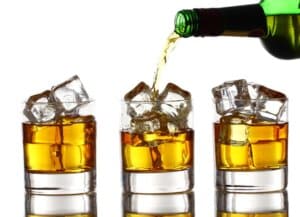Are you confused with diet advice?
A well known bio-hacker has been advising against eating kale … is that making your head spin?
Have you heard about insulin resistance and how it stops you from losing weight?
As Functional Medicine physicians, we have struggles within our own homes with our families, following all the different advice that comes from nutrition studies.
When to eat. What to eat. Which foods are better than others? How to stay away from bad foods.Does it mean I can never eat something tasty again?
Food is fuel. It fuels your cells and health or feeds disease.
If you are new to the world of what to eat and what not to eat, start with these simple rules:
- Eat real food:
Processed food has additives and chemicals. It goes without saying that food from the ground and straight from nature is better for your body.All processed foods have hidden sugars. Sugar raises insulin levels and promotes the storage of fat. Mashed potato, brown rice, whole wheat bread, low fat yogurt, breakfast bars, cereals, protein bars, french fries, burgers, pizza, oatmeal, dried fruit…. they all impact your blood sugar levels negatively, stimulate insulin and increase fat storage, especially in your belly.
When you eat these foods, choose smaller portions and eat them less often.
Eat protein first.
Pair it with a good fat. - Eat low carb:
It is many years since we have talked about glycemic load and glycemic index. This is because new science has emerged showing that there is a ‘personalized glycemic response’.is more valid and accurate. This is because your hormones, your microbiome and your digestive system function determine how high your blood sugar levels rise in response to the food you eat. Before you look into continuous blood sugar monitoring and insulin response, start with removing sugar, lower your intake of anything made with flour, and keep your grain intake low.Increase your intake of above the ground veggies, and good fats like olive oil, nuts and seeds, butter and avocados.
The thing about bio-hackers and their advice is that it makes it seem that doing a little thing here or taking a supplement there is all that you need to do.
Changing how you eat is the hardest thing to do. This is why you need to start with baby steps, make a change, let it stick and then make another one.
Baby steps, that last, is what it takes to maximise your health -
Stop counting calories:
It has long been shown that calorie counting is dead. I still do talk about it at times to make a point, like how much exercise it takes to burn off a burger or piece of cake. However, not all calories are equal. The nutritional value and how the food affects your blood sugar matters more than the calories. A 100 cal steak and a 100 cal bag of chocolate chip cookies is absolutely not the same for your health. The nutritional value, the benefit to your cells is different. Sugars and processed food accelerate aging of cells. Steak helps you build and grow muscles, repair tissue, provide vitamins and minerals and good fats,and balances your blood sugar.
It’s not that you should never eat a cookie. For some people who have brain chemistry imbalances or sugar addictions, it is best to avoid provoking your cravings and stick to a diet that helps balance blood sugar levels. Other people can successfully manage their choices of food and can control their consumption of ‘foods best avoided’.
Whenever you are faced with a tough choice on what to eat:
- How close to natural or whole food is it?
- Can I pick protein first so I don’t overeat?
- How will this food affect my blood sugar levels (by stimulating insulin)?
Food is fuel.
Enjoy it.


